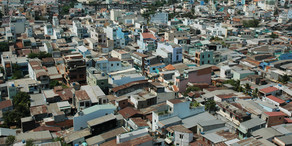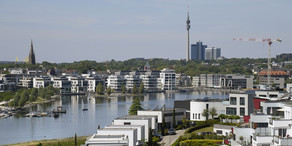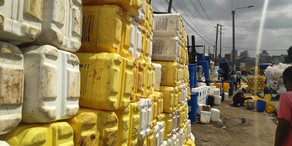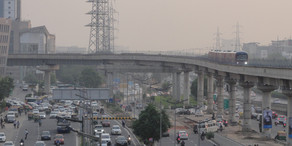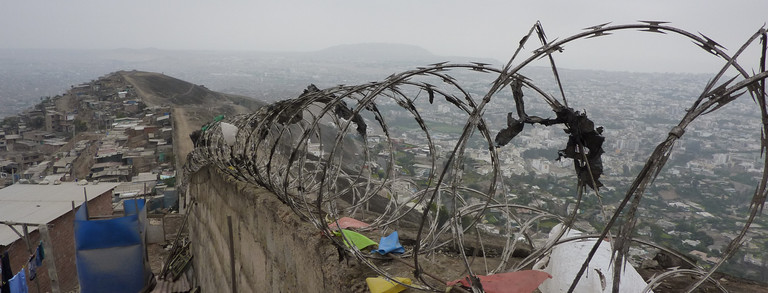Joint article by Sophie Schramm and Francis Dakyaga
- Archiv
- Forschung
- Fachgebiet
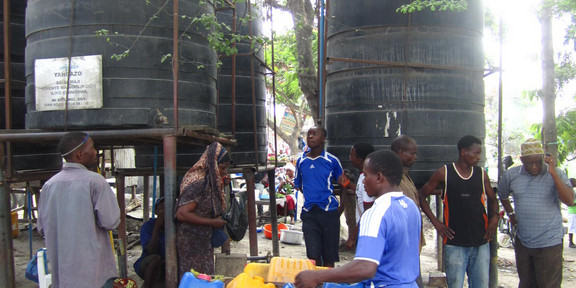
Article
Sophie Schramm and Francis Dakyaga have published the article "Between self-help and emerging water markets: self-governance, everyday practices and the spatiality of water access in Dar es Salaam" in the current issue of the Journal Urban Geography. In the article, the researchers look at everyday practices and the spatiality of water access in Dar es Salaam.
everyday practices, self-governance, urban infrastructure, water access, Dar es Salaam
Authors
- Sophie Schramm
- Francis Dakyaga
Abstract
In many Sub-Saharan African cities, residents depend more or less on decentralized (off the utility grid) water infrastructures, often by engaging in diverse but ordinary daily acts through which
water is supplied and collected beyond the utility. However, little is known about how these practices and governance arrangement shape water access in terms of distance of water sources, reliability, affordability and water quality. This study addresses this gap by exploring the potential and limits of the
ordinary ways in which peri-urban residents self-supply and collect water and how that shapes water access. Through in-depth interviews, observations and household surveys, we contribute to urban water infrastructure governance debates by showcasing how these practices driven by a constellation of governance actors, simplified water access situation, and enable the involved actors (independent self-help actors and market-oriented actors) to earn extra income. The practices were characterized by
informal relations, financial powers to supply water and to restrict use. These (re)produced geographies of access advantage in favor of the suppliers and access disadvantages to residents who depended on off the utility grid water infrastructures in the absence of state utility. We conclude that although the ordinary
ways of supplying and regulating water infrastructures hold some potential for fulfilling the water access gaps, the uneven power relations, propertisation and commodification of water
infrastructures limit their usefulness. Here you may find the full article in the Journal Urban Geography.



